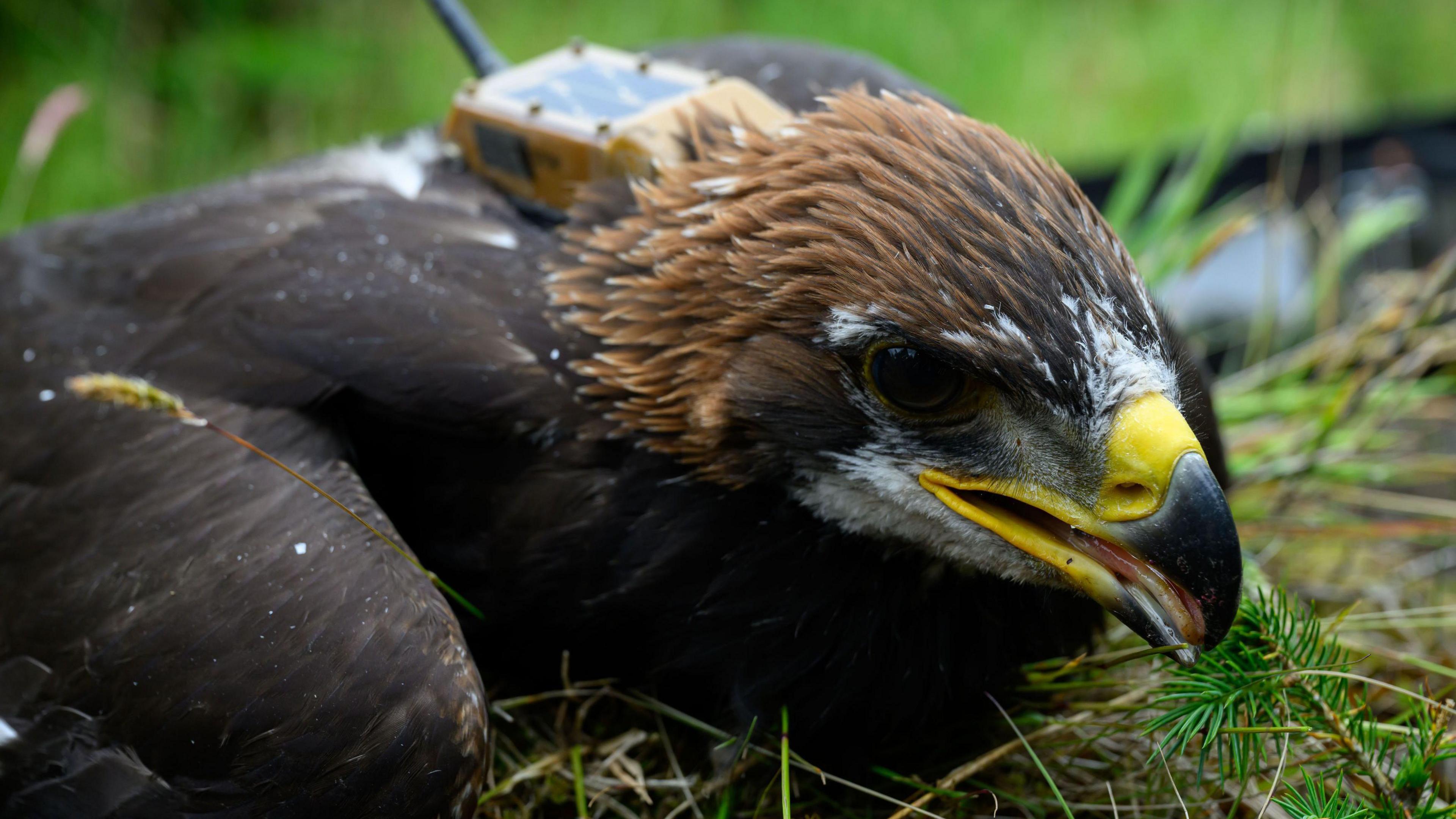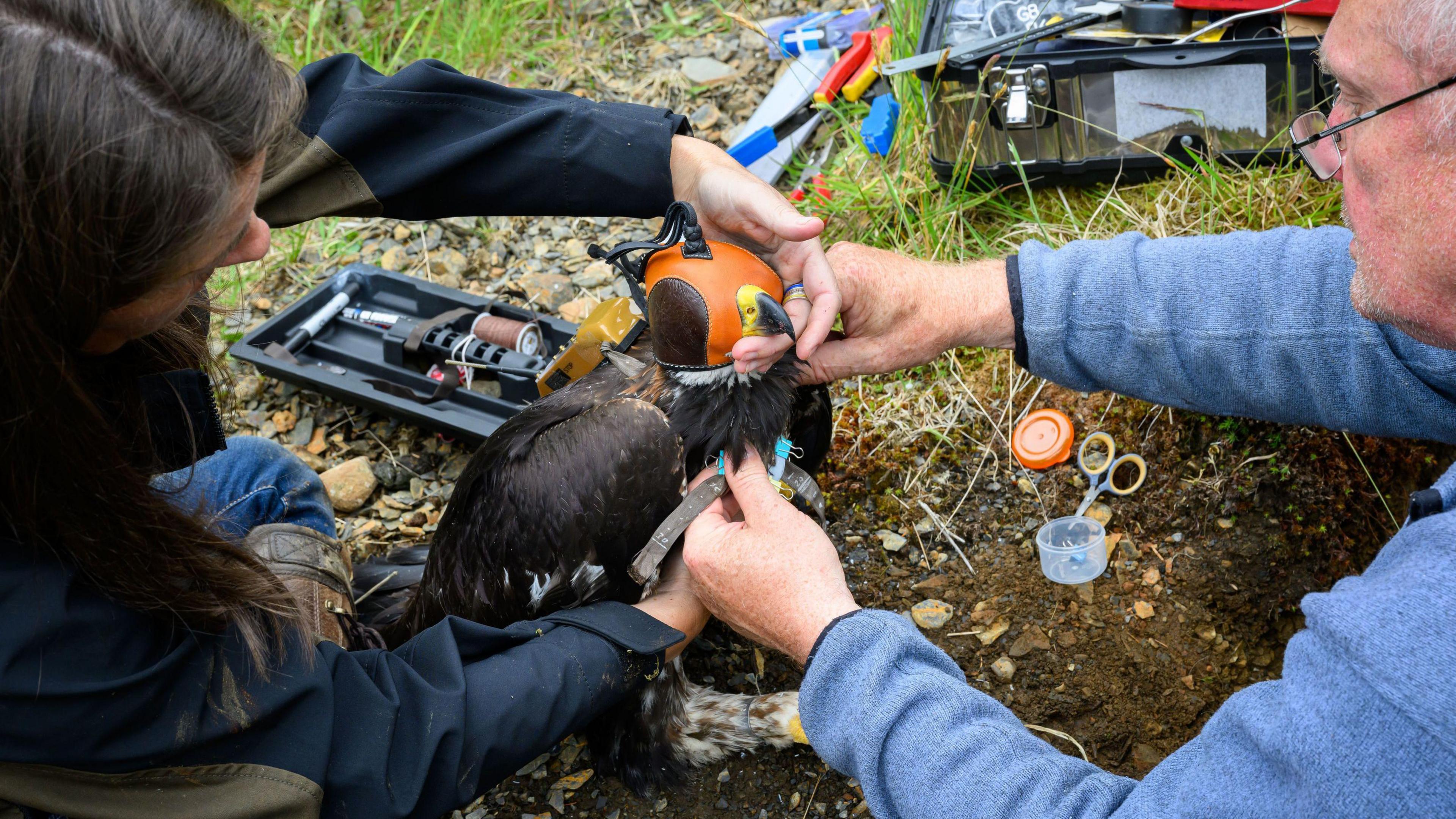Sir David Attenborough names golden eagle chick

- Published
Sir David Attenborough has named the first young golden eagle to fly the nest from a special conservation project in Scotland.
He named the baby eaglet "Princeling" - meaning young prince.
The broadcaster and naturalist who turned 99 years old in May says he chose the name because it symbolises new hope for the restoration of the species and called the moment a "wonderful achievement".
The project is part of the South of Scotland Golden Eagle Project (SSGEP), which aims to increase their numbers throughout the country.
News of the bird's hatching this spring was kept secret until he was ready to fly the nest in a bid to protect his safety and welfare. He was satellite-tagged by licensed experts in June.
Golden eagles return to English skies
- Published29 May
Scotland has most golden eagles for 300 years
- Published7 September 2023
Princeling's mother was moved from the Scottish highlands to the South of Scotland in 2021, where there was a low population of golden eagles.
Princeling's arrival brings the number of golden eagles soaring in the south of Scotland to over 50, the most seen in the region for three hundred years.
Sir David said: "Many congratulations to all those in Restoring Upland Nature who have brought about the fledging of a young golden eagle."
After the mother Eagle was moved, it paired with a male eagle that already lived in the new area. The conservation charity says this shows that golden eagles that are moved, can integrate successfully into local populations.

The golden eaglet was measured and tagged
The conservation project will now be expanded to England and Wales to to increase golden eagle numbers across the UK.
The golden eagle is the UK's second-largest birds of prey, and disappeared in England in the 19th century because of hunting.
The last native golden eagle, which lived alone on a reserve in the Lake District, disappeared in 2015.
Revealing the latest news, the chief executive of RUN, Dr Cat Barlow, said:
"Seeing Princeling thrive in the south of Scotland highlights that, where there are healthy ecosystems and a low risk of persecution, translocated eagles can integrate well into native populations to breed successfully."
